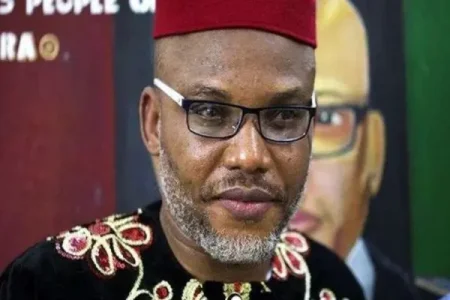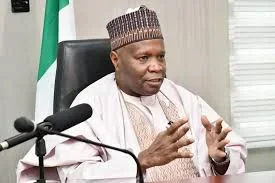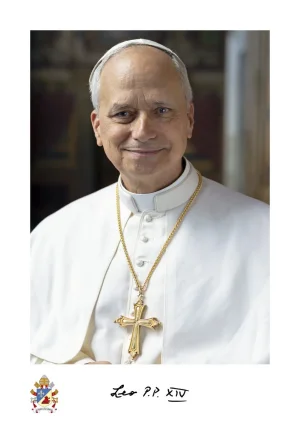
There was confusion in court as Nnamdi Kanu denied knowing a lawyer who claimed to represent him. The judge also warned Kanu’s team over courtroom decorum and restricted their numbers.
- A lawyer, Charles Ude, claimed to represent Kanu in court, but Kanu firmly rejected him, insisting Agabi remained his counsel.
- The judge warned that only 16 out of the 26 lawyers listed would be allowed, citing decorum and a previous agreement.
- A woman, Favour Kanu, was excused from attending three future sittings after she was accused of recording court proceedings earlier.
- During cross-examination, the defence highlighted that several terrorism-related charges against Kanu had been struck out.
- The prosecution acknowledged that their witness was largely unaware of which charges had been dismissed.
As Kanu’s case drags on, the courtroom remains a battleground — not just for justice, but for credibility. Will the legal fireworks obscure the core issues at stake?




